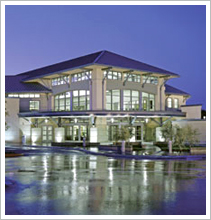 When giants fall, they leave craters. Such is the case with the recent collapse of Borders Books. A couple of months back they shuttered a large number of their stores in the attempt to increase the profitability of the rest and stay fiscally afloat. It didn't work. Come September, huge empty retail spaces will be all that remains of Borders Books. That's the most obvious damage.
When giants fall, they leave craters. Such is the case with the recent collapse of Borders Books. A couple of months back they shuttered a large number of their stores in the attempt to increase the profitability of the rest and stay fiscally afloat. It didn't work. Come September, huge empty retail spaces will be all that remains of Borders Books. That's the most obvious damage.
There is a shadow crater left behind as well. In the 80's and 90's when Borders (and their rival, Barnes and Noble) rose to prominence, they entered many communities that already had small independent bookstores. The size of the superstores' selections, their low prices, and just the sheer novelty of something new ("Coffee!? In the store!? Wow!" ... admit it, we all felt that way) signed a death warrant for most of the independents. They couldn't compete and went under. The communities were upset (despite their partial culpability), but they still had a (big) bookstore to go to. Now, however, they don't.
"That's okay, you can still buy books on the Internet." True, the Internet is a good place to buy books. But it is not a bookstore. Amazon has an amazing selection of titles. Mind boggling really ("Earth's Biggest" according to their website... which is a bit silly considering none of the other planets are competing) . But you'll never even see a fraction of a percent of that selection. You will see the book you are looking for, the books purchased by people who purchased the book you are looking for, and a list of recommendations created by a computer algorithm. It feels like you are freely browsing, but you are actually corralled.
In a digital bookstore, the range of your discovery is limited to your keyword search (to be fair, it's the same thing with library catalogs and their tricky nomenclature). You will never stumble across that amazing book of cookie recipes you didn't know existed if you search the terms "dog training" (and if you did, I'd be concerned about the cookies' ingredients). At a real bookstore, you may have to walk past the baking section to get to the dog section. While doing so, there's that cookie book staring right at you. The chocolate chip decadence on the cover is too good to resist. You must have it. As a bonus, you find a recipe for baking organic dog treats. Serendipity!
But talking about shopping behavior misses the point. How or what we buy is a legitimate, though simplistic division. The true value of a physical bookstore is not solely found in its books. Bookstores, like libraries, provide venues for communities to share ideas about what's important to them. It is one of the always air-quoted "third places" that library types go all misty-eyed about. While it's true that a bookstore is a business, a truly amazing bookstore will never feel that way. It will seem like more than a monetary transaction taking place.
I spent the weekend reading Andrew Laties' Rebel Bookseller (excellent by the way) and visiting the bookstores where I live. Each one, be it the ramshackle used place, the stylized indie, the anarchist joint (cleanest bookstore of them all... go figure), or the one I would call home if I could, each one was created to provoke thought (and hopefully make a profit so they can continue to do so). The successful ones felt as if they belonged in the community. As if removing it would do some sort of damage to the fabric of that neighborhood. That is the true distinction between the physical and the digital.
So, with luck, prospective small bookstore owners will see Borders' collapse as a call to arms to repopulate communities with new shops instead of a doom and gloom prophesy about the book's inevitable death. After all, for how many times the book has been claimed dead, it has resolutely refused to acquiesce.
posted by jw

